| Conferences > Extracellular Vesicles (EVs: Exosomes and Microvesicles): Research, Diagnostics and Therapeutics Applications > Keynote Speakers |
| Register | Login |
J. Carl BarrettVice President, Translational Sciences Oncology, AstraZeneca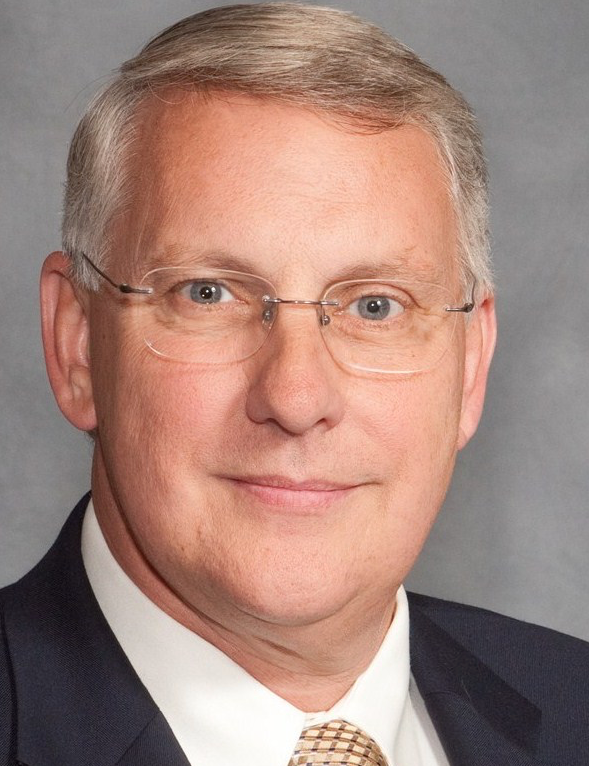 Dr. J. Carl Barrett is Vice President of Translational Science in Oncology at AstraZeneca. He is responsible for development and execution of biomarker strategies and translational sciences efforts to support compound development from research through early and full development in oncology. From 2005-2011, he was Global Head of Oncology Biomarkers and Imaging at Novartis. |
George CalinProfessor and The Alan M. Gewirtz Leukemia & Lymphoma Society Scholar, University of Texas MD Anderson Cancer Center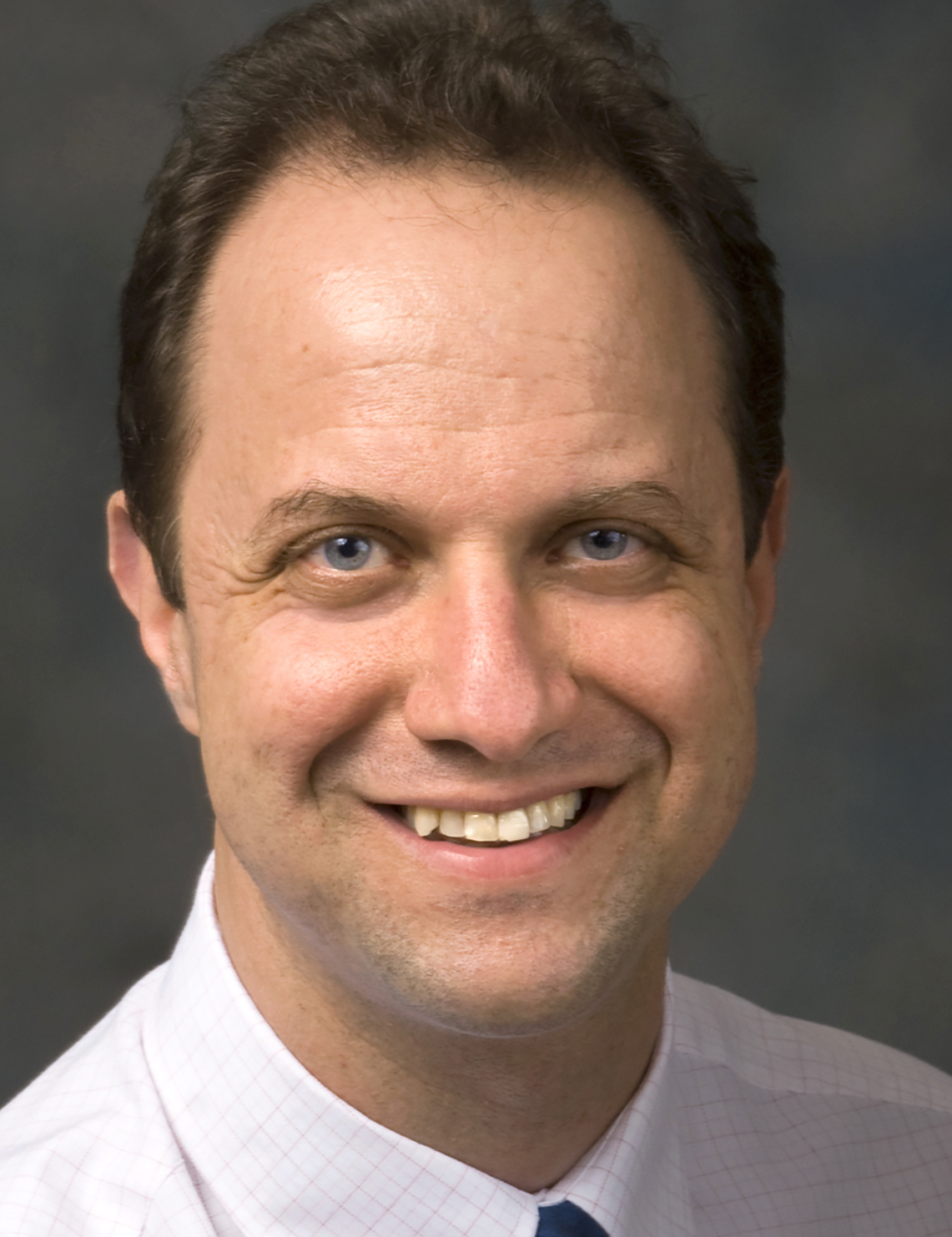 George Adrian Calin received both his M.D. and Ph.D. degrees at Carol Davila University of Medicine in Bucharest, Romania. After working cytogenetics as undergraduate student with Dr. Dragos Stefanescu in Bucharest, he completed a cancer genomics training in Dr. Massimo Negrini’s laboratory at University of Ferrara, Italy. In 2000 he became a postdoctoral fellow at Kimmel Cancer Center in Philadelphia, PA, and while working in Dr. Carlo Croce laboratory Dr. Calin was the first to discover the link between human cancers and microRNAs, a finding considered as a milestone in microRNA research history. He has now developed starting from July 2007 an independent research group at the M. D. Anderson Cancer Center in Houston and produced a new advance by linking new classes of non-coding RNAs to cancer. He is presently a Professor in Experimental Therapeutics at MDACC and studies the roles of microRNAs and other non-coding RNAs in cancer initiation and progression and in immune disorders, as well as the mechanisms of cancer predisposition linked to non-codingRNAs. Furthermore, he explores the roles of body fluids miRNAs as potential hormones and biomarkers, as well as new RNA therapeutic options for cancer patients. |
Bob CarterProfessor and Chief of Neurosurgery, Massachusetts General Hospital, Harvard Medical School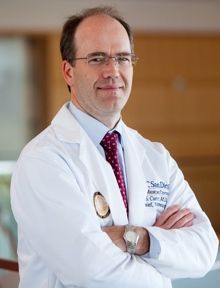 Dr. Carter is Professor and Chair of Neurosurgery at Massachusetts General Hospital, Harvard Medical School. For the past several years, he has pursued research in the area of extracellular RNA and glioma biology. |
Daniel ChiuA. Bruce Montgomery Professor of Chemistry, University of Washington Daniel T. Chiu is currently the A. Bruce Montgomery Professor Chemistry, Endowed Professor of Analytical Chemistry, and Professor of Bioengineering at the University of Washington. He is a member of the University of Washington’s Center for Nanotechnology, Neurobiology and Behavior Program, and the Cancer Consortium of the Fred Hutchinson Cancer Research Center. He has authored more than 180 publications and is the inventor on over 40 issued patents. Dr. Chiu obtained a B.A. in neurobiology and a B.S. in chemistry at the University of California, Berkeley in 1993, and a Ph.D. in chemistry from Stanford University in 1998. |
Tony Jun HuangWilliam Bevan Distinguished Professor of Mechanical Engineering and Materials Science, Duke University Tony Jun Huang is the William Bevan Distinguished Professor of Mechanical Engineering and Materials Science at Duke University. Previously he was a professor and the Huck Distinguished Chair in Bioengineering Science and Mechanics at The Pennsylvania State University. He received his Ph.D. degree in Mechanical and Aerospace Engineering from the University of California, Los Angeles (UCLA) in 2005. His research interests are in the fields of acoustofluidics, optofluidics, and micro/nano systems for biomedical diagnostics and therapeutics. He has authored/co-authored over 260 peer-reviewed journal publications in these fields. His journal articles have been cited more than 32,000 times, as documented at Google Scholar (h-index: 95). He also has 26 issued or pending patents. Prof. Huang was elected a fellow (member) of National Academy of Inventers (USA) and the European Academy of Sciences and Arts. He was also a fellow of the following six professional societies: American Association for the Advancement of Science (AAAS), the American Institute for Medical and Biological Engineering (AIMBE), the American Society of Mechanical Engineers (ASME), the Institute of Electrical and Electronics Engineers (IEEE), the Institute of Physics (UK), and the Royal Society of Chemistry (UK). In addition, he has selected to receive many prestigious awards and honors including a 2010 National Institutes of Health (NIH) Director’s New Innovator Award, a 2012 Outstanding Young Manufacturing Engineer Award from the Society for Manufacturing Engineering, the 2014 IEEE Sensors Council Technical Achievement Award from the Institute of Electrical and Electronics Engineers (IEEE), the 2017 Analytical Chemistry Young Innovator Award from the American Chemical Society (ACS), the 2019 Van Mow Medal from the American Society of Mechanical Engineers (ASME), and the 2019 Technical Achievement Award from the IEEE Engineering in Medicine and Biology Society (EMBS). In the last two consecutive years (2022-2023), he has been named to a global list of the most highly cited researchers (cross field) by Clarivate (Web of Science). |
Jennifer JonesNIH Stadtman Investigator, Head of Transnational Nanobiology, Laboratory of Pathology, Center for Cancer Research, National Cancer Institute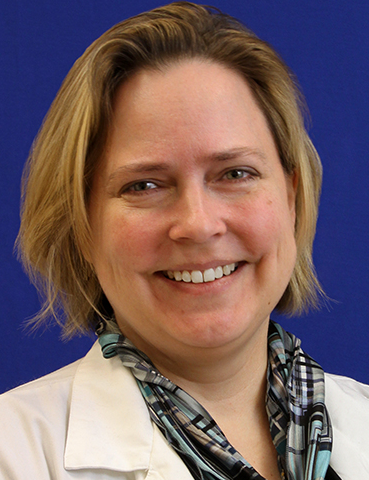 Dr. Jones is NIH Stadtman Investigator, Head of Transnational Nanobiology, Laboratory of Pathology at the Center for Cancer Research, National Cancer Institute, who is developing, refining, and applying advanced high-resolution flow cytometric methods to the characterization of EV subsets. She initiated/cofounded the international ISEV-ISAC-ISTH EV Flow Cytometry Working Group, to support the development of consensus best practices and standardization methods for the field. The ultimate goal of her research is to develop a new class of EV-based biomarkers (and methods for anlyzing those EVs) that will enable adaptve therapeutic strategies, where individual patient treatments are customized based on early responses to treatment. |
Walter KochVice President, Roche Molecular Systems Walter H. Koch, Ph.D., has been in his current role of Vice President and Head of Global Research for Roche Molecular Systems since 2005. Dr. Koch is responsible for all RMD research and early development activities, including research efforts associated with biomarker discovery and validation, the development of new technologies with diagnostics potential such as next generation sequencing, and continuing improvements in the performance of existing real time PCR products and technologies. He joined RMS in 1998 as a Research Leader to evaluate the feasibility of developing microarray-based pharmacogenetic assays for clinical diagnostic use, resulting in the launch of the AmpliChip® CYP450 assay. From 2001-2004 he served as the Senior Director of the Pharmacogenetics Department, leading six scientific teams. In this role, he was responsible for development of genetic and pharmacogenomic assays using Affymetrix oligonucleotide microarray, linear array, and real-time PCR technologies and platforms. Prior to joining Roche he held several positions within the US FDA, including Acting Lab Chief of Immunochemistry and Research Biologist in the CBER’s Division of Transfusion Transmitted Disease, and Research Biologist positions in the Division of Molecular Biological Research & Evaluation, and the Division of Toxicology within CFSAN. He received a B.S. in Chemistry from Memphis State University, a Ph.D. in Toxicology and Pharmacology from the University of Tennessee Health Science Center, and Postdoctoral training at the Johns Hopkins University School of Public Health. |
Lucia LanguinoProfessor of Cancer Biology, Thomas Jefferson University Dr. Languino investigates the role of cell adhesion receptors in phenotypic changes of prostate cancer cells. A strong research focus is being devoted to the study of the cross-talk between cell adhesion molecules, extracellular matrix proteins and growth factor receptors in vitro and in vivo systems and how this cross-talk affects intracellular signal transduction, cell survival, cell migration and cell division. Dr. Languino's research interests also focus on the cellular and molecular characterization of the metastatic process of prostate cancer with particular emphasis on the signals directing distant localization of prostate cancer cells |
Y. Peng LohChief and Senior Investigator, Section on Cellular Neurobiology, Eunice Kennedy Shriver National Institute of Child health and Human Development, National Institutes of Health (NIH)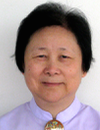 Dr. Y. Peng Loh is the Chief, and Senior Investigator in the Section on Cellular Neurobiology, NICHD, NIH, USA. She received her PhD from the University of Pennsylvania in Molecular Biology and did postdoctoral studies at NIH in Molecular and Cellular Neuroscience. Her laboratory research over the last 8 years focuses on two areas: First, the new role of carboxypeptidase E (CPE, now also named NF-a1) as a trophic factor in neuroprotection, depression and stem cell differentiation. Secondly, she investigates the important roles discovered in her laboratory, of CPE and a splice variant of the CPE gene (CPE-?N) in tumor growth, survival and metastasis. CPE/CPE-?N is being developed as a tumor tissue biomarker for predicting future recurrence/metastasis, especially in patients with early stage cancers of various types, as well as for blood-based (circulating exosome) screening of high risk patients for early detection of cancer. She has published more than 250 papers in reputable journals and book chapters and is on the editorial board of several journals. She has lectured world-wide, and received many prestigious awards including the FASEB Excellence in Science Award, NIH Director’s awards for Science and the Anita Roberts Distinguished Woman Scientist Award. |
Jan LötvallProfessor Krefting Research Centre, University of Gothenburg, Chief Scientist, Codiak BioSciences; Founding President of ISEV Jan Lötvall is a professor at University of Gothenburg, Sweden, and is renowned for having discovered the shuttling of RNA between cells by exosomes. He was also intricately involved in starting the International Society for Extracellular Vesicles (www.isev.org), and was the president for this academic association for the period 2011-2016. He has recently taken on new challenges, developing exosomes as therapeutics, with the startup biotech company Codiak BioSciences Inc in Boston. |
Peter QuesenberryProfessor of Medicine, The Warren Alpert Medical School of Brown University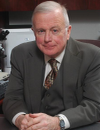 Dr Peter Quesenberry is a hematologist/oncologist with a long history of work on stem cell biology and characteristics of the stem cell, especially with regard to cell cycle transit. More recently his work has focused on extracellular vesicles and their capacity to alter cell fate and to restore injured tissue. Dr Quesenberry is the Paul Calabresi, MD Professor in Oncology and Director of Hematology/Oncology Research at the Warren Alpert Medical School of Brown University. He lists over 300 publications on PubMed. He is the American editor of the Journal of Extracellular Vesicles. |
Paul RobbinsProfessor, Department of Biochemistry, Molecular Biology, and Biophysics, and the Institute on the Biology of Aging and Metabolism, University of Minnesota Medical School Paul D. Robbins, Ph.D. is Professor Department of Biochemistry, Molecular Biology, and Biophysics, and the Institute on the Biology of Aging and Metabolism, University of Minnesota Medical School, Minneapolis, MN. Previously he was a Professor of Microbiology and Molecular Genetics, Director of Basic Research for the Molecular Medicine Institute and Co-Director of the Paul Wellstone Cooperative Muscular Research Center at the University of Pittsburgh School of Medicine as well as Interim Director of Molecular & Cellular Oncology at the University of Pittsburgh Cancer Institute. He received his B.A. from Haverford College, his Ph.D. from the University of California at Berkeley and worked as a post-doctoral fellow in the laboratory of Dr. Richard Mulligan at the Whitehead Institute for Biomedical Research at MIT. He has co-authored over 320 peer-reviewed manuscripts and 170 book chapters and reviews and edited four books. He was a member of the NIH PathB Study Section, Chair of the Italian Telethon Scientific Review Committee and a member of the Telethon Scientific Advisory Board. He also was a member of the Scientific Review Board of National Gene Vector Laboratory and the Board of Directors of the American Society of Gene Therapy and currently is a member of the National Institute on Aging Interventions Testing Program. He has co-founded two biotechnology companies and currently serves on the Scientific Advisory Boards of four biotechnology companies. Dr. Robbins’ research is focused on developing therapeutic approaches, including small molecules, biologics and stem cells, to extend healthspan and reduce frailty using mouse models of aging. |
Steve SoperFoundation Distinguished Professor, Director, Center of BioModular Multi-Scale System for Precision Medicine, The University of Kansas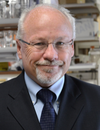 Prof. Soper is currently a Foundation Distinguished Professor in Chemistry and Mechanical Engineering at the University of Kansas, Lawrence. Prof. Soper also holds an appointment at Ulsan National Institute of Science and Technology in Ulsan, South Korea, where he is a World Class University Professor. He is also serving as a Science Advisor for a number of major worldwide companies. Prof. Soper is currently on the Editorial Board for Scientific Reports and Journal of Micro- and Nanosystems. |
Shannon StottAssistant Professor, Massachusetts General Hospital & Harvard Medical School The Stott laboratory is comprised of bioengineers and chemists focused on translating technological advances to relevant applications in clinical medicine. Specifically, we are interested in using microfluidics and imaging technologies to create tools that increase understanding of cancer biology and of the metastatic process. In collaboration with the Toner, Haber and Maheswaran laboratories, we have developed a microfluidic device that can isolate extraordinary rare circulating tumor cells (CTCs) from the blood of cancer patients. We are striving to employ new imaging modalities to extract as much information as possible from these rare cells while pushing the technology further for early cancer detection. Ultimately, we hope that by working in close partnership with the molecular and cell biologist at the Mass General Cancer Center, we can create new tools that directly impact patient care. |
Gyongyi SzaboProfessor & Vice Chair for Research, Department of Medicine, University of Massachusetts Medical School.png) Gyongyi Szabo, MD, PhD, FAASDL, FACP, AGAF is the Worcester Foundation for Biomedical Sciences Endowed Chair, Associate Vice Provost for Interprofessional Education, Professor and Vice Chair of Medicine at the University of Massachusetts Medical School. Dr. Szabo is an internationally recognized leader in the field of liver immunology and inflammation. Her translational research and clinical investigations focus on alcoholic hepatitis, non-alcoholic fatty liver disease and viral hepatitis. She is the lead investigator on an NIH-supported multicenter clinical trial on alcoholic hepatitis. Her laboratory studies molecular mechanisms of inflammation and innate immunity to identify therapeutic targets and to explore translation of bench to bedside opportunities in liver diseases. Her recent research focuses on the role of Toll-like receptor and Nod-like receptor signaling pathways in alcoholic and non-alcoholic fatty liver diseases and the importance of micro-RNAs as biomarkers. In recognition of her contributions to medical research she was recently elected to the Hungarian Academy of Sciences. She serves on the Editorial Board of Hepatology, Nature Reviews Gartoenterology & Hepatology and on the Advisory Board of several agencies including the NIH ExRNA Consortium. She is President of the American Association for the Study of Liver Diseases in 2015. |
David WongFelix and Mildred Yip Endowed Chair in Dentistry; Director for UCLA Center for Oral/Head & Neck Oncology Research, University of California-Los Angeles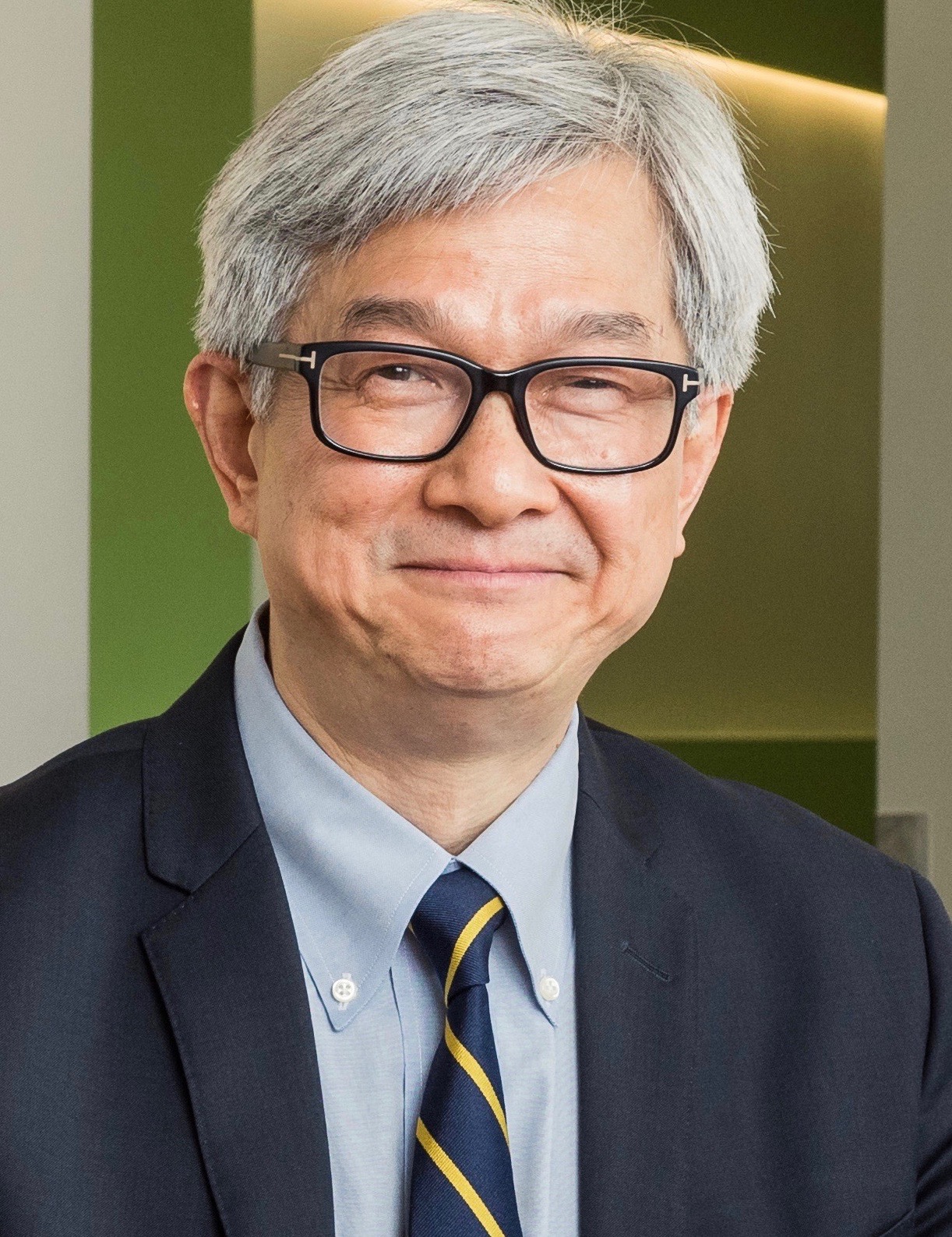 David T.W. Wong DMD, DMSc is Felix & Mildred Yip Endowed Professor, Associate Dean of Research and Director of the Oral/Head and Neck Oncology Research Center at UCLA. Dr. Wong is an active scientist in oral cancer and saliva diagnostics research. He has authored over 280 peer reviewed scientific publications. He is a fellow of the American Association for the Advancement of Sciences (AAAS), past member of the ADA Council of Scientific Affairs and the past president of American Association of Dental Research (AADR). |




